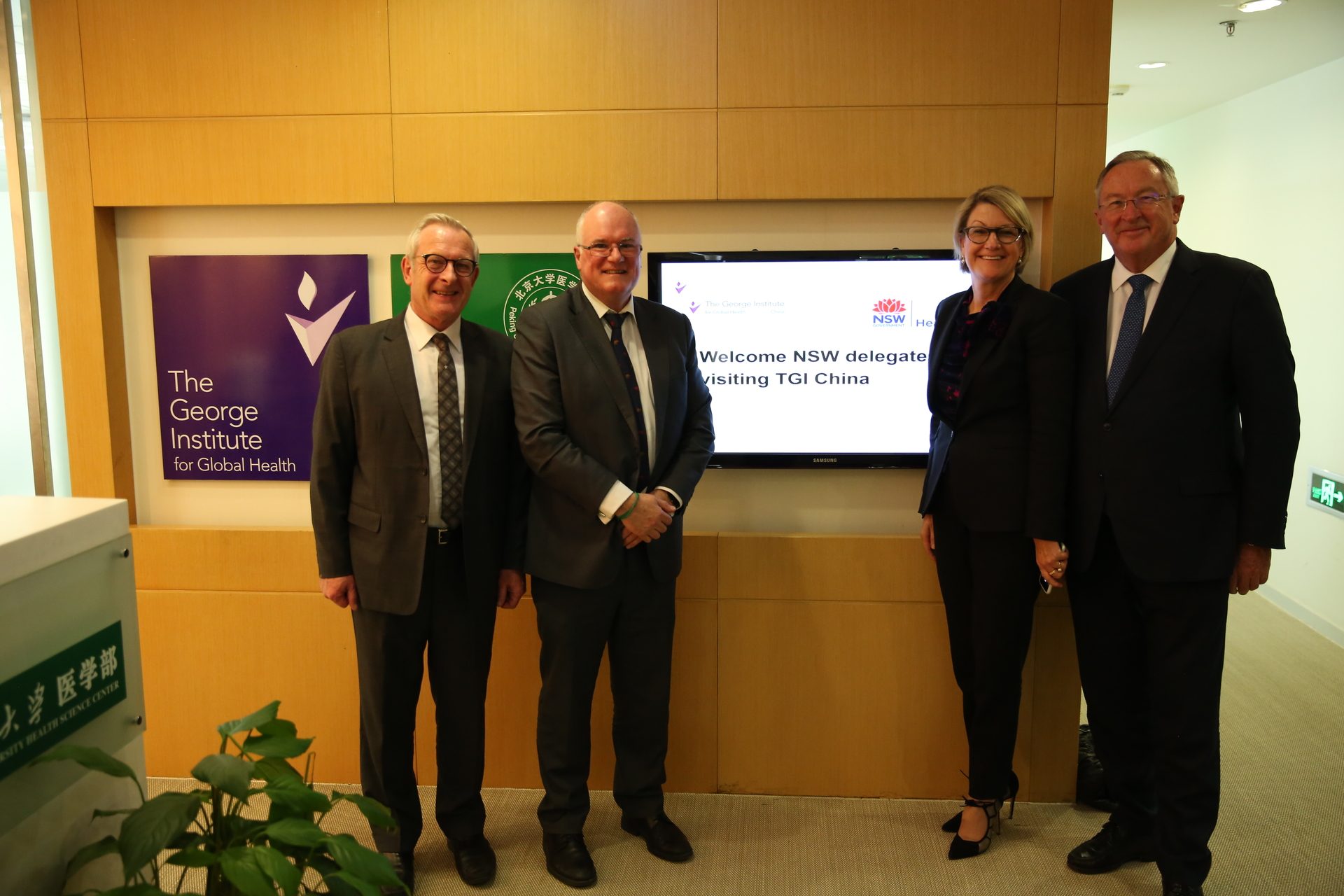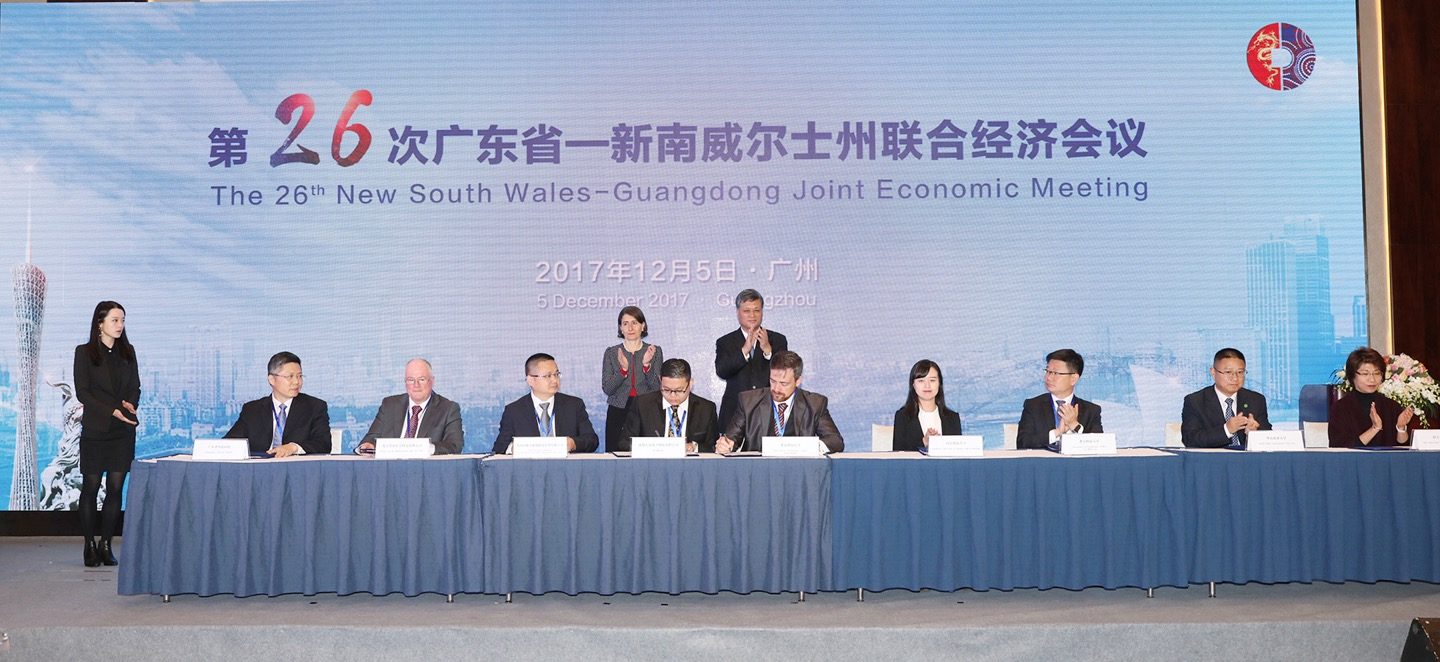
New South Wales and China explore opportunities to grow in health and medical research
The NSW Minister for Health and Medical Research, The Honourable Brad Hazzard MP, visited The George Institute, China on 7 December with a health and medical delegation led by the Minister in China as part of the NSW-Guangdong Joint Economic Meeting (JEM) on 5 December. The Secretary of NSW Health, Elizabeth Koff, and Special Envoy to China, Dr Jim Harrowell AM also attended.
Shared learnings and opportunities for clinical and health research collaboration between NSW and China were the focus of discussion. Insights were shared on the cooperative experiences of The George Institute, China and George Clinical, its commercial arm and one of the largest Clinical Research Organisations in the Asia-Pacific.
Executive Director of The George Institute, China, Professor Craig Anderson, said The George is a great NSW success story and The George Institute, China, which is celebrating 10 years since establishment in 2017, has played a pivotal role in its global research impact.
"We are extremely proud of the partnerships that have made the work of The George in China possible, such as with Chinese academic institutes, hospitals and healthcare providers,” said Professor Anderson. “Hosting the Minister and his delegation at The George institute, China has been a great opportunity to showcase NSW innovation and explore future areas of cooperation.”
"Australia and China can both benefit from work of NSW organisations such as The George, affiliated with UNSW Sydney and Peking University Health Science Center, because the research is collaborative in nature, to address mutual health priorities and outcomes to directly benefit people’s lives and the economies and health systems in both countries.”
This visit of the Minister and the delegation party follows the JEM on 5 December, which The George Institute, China participated in as part of the health and medical delegation.

"The JEM is an important forum to advance business and intellectual collaboration between NSW and Guangdong Province, and more broadly between Australia and China, because it presents opportunities to forge and grow partnerships to address mutual health care challenges,” said Professor Anderson.
During the JEM The George Institute and Guangdong Hospital signed an expanded Memorandum of Understanding in cardiovascular research. Outcomes of this collaboration aim to develop an integrated tertiary-primary system for managing heart attack patients, including involvement of multidisciplinary teams and shared electronic disease management systems.
The George Institute, China is working locally to combine and leverage the health and research strengths of NSW and China in its effort to identify solutions to prevent and treat the world’s biggest killers, such as heart attack, stroke, kidney disease, and diabetes.
Other local guests who attended the visit to The George Institute, China in Beijing included representatives from Heart Health Research Center (HHRC), Peking University Health Science Center, and UNSW Sydney Torch center.
Delegates visited included representatives from the NSW government, UNSW Sydney, Peking University Health Science Center, Anzhen Hospital, Sound Scouts, Royal Rehab, Tresillian Family Care Centres, University of Technology, Sydney, Scientia Clinical Research, Children’s Cancer Institute, CHS Health Care (China) and Chin Communications.


